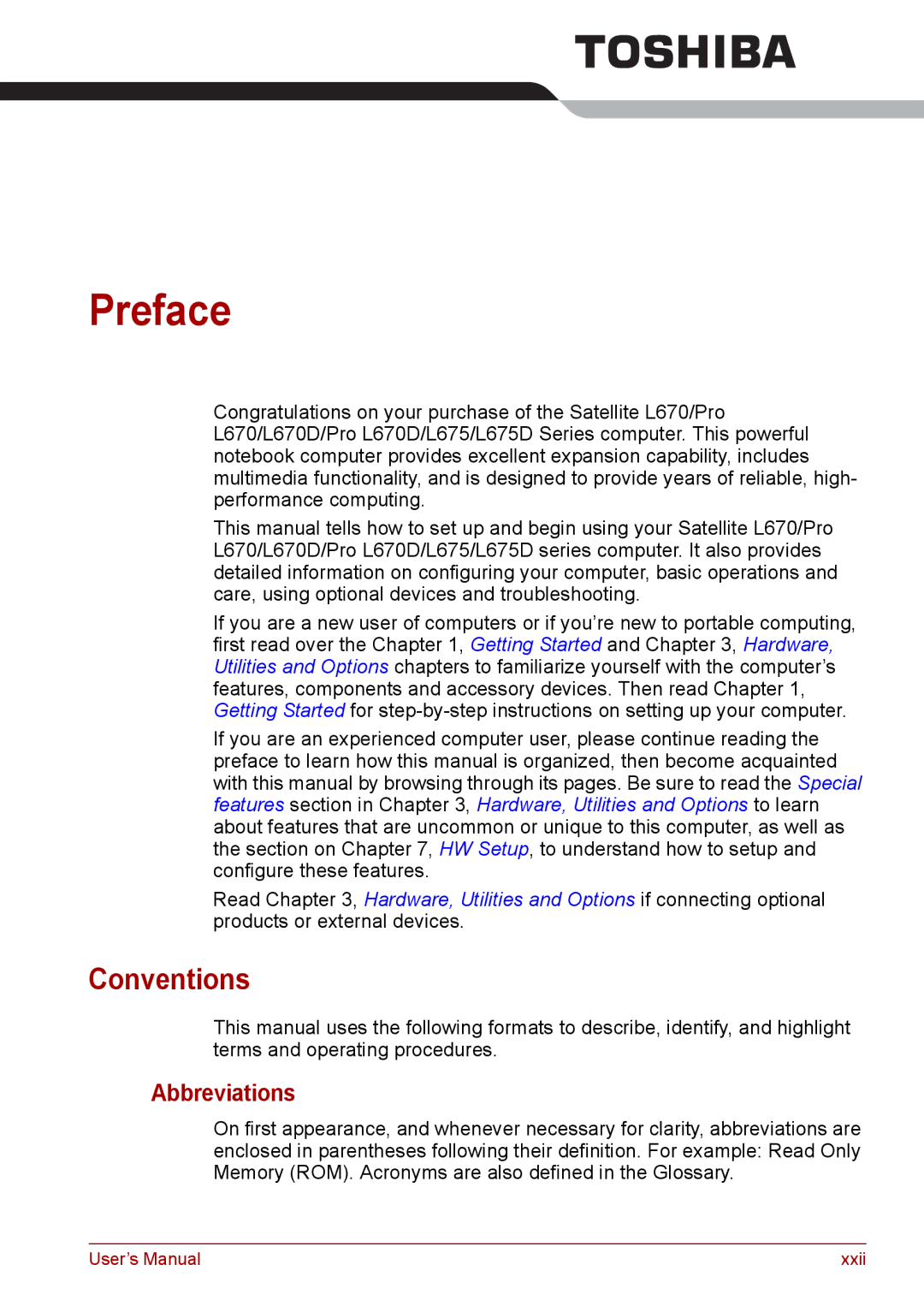
Preface
Congratulations on your purchase of the Satellite L670/Pro L670/L670D/Pro L670D/L675/L675D Series computer. This powerful notebook computer provides excellent expansion capability, includes multimedia functionality, and is designed to provide years of reliable, high- performance computing.
This manual tells how to set up and begin using your Satellite L670/Pro L670/L670D/Pro L670D/L675/L675D series computer. It also provides detailed information on configuring your computer, basic operations and care, using optional devices and troubleshooting.
If you are a new user of computers or if you’re new to portable computing, first read over the Chapter 1, Getting Started and Chapter 3, Hardware, Utilities and Options chapters to familiarize yourself with the computer’s features, components and accessory devices. Then read Chapter 1, Getting Started for
If you are an experienced computer user, please continue reading the preface to learn how this manual is organized, then become acquainted with this manual by browsing through its pages. Be sure to read the Special features section in Chapter 3, Hardware, Utilities and Options to learn about features that are uncommon or unique to this computer, as well as the section on Chapter 7, HW Setup, to understand how to setup and configure these features.
Read Chapter 3, Hardware, Utilities and Options if connecting optional products or external devices.
Conventions
This manual uses the following formats to describe, identify, and highlight terms and operating procedures.
Abbreviations
On first appearance, and whenever necessary for clarity, abbreviations are enclosed in parentheses following their definition. For example: Read Only Memory (ROM). Acronyms are also defined in the Glossary.
User’s Manual | xxii |
